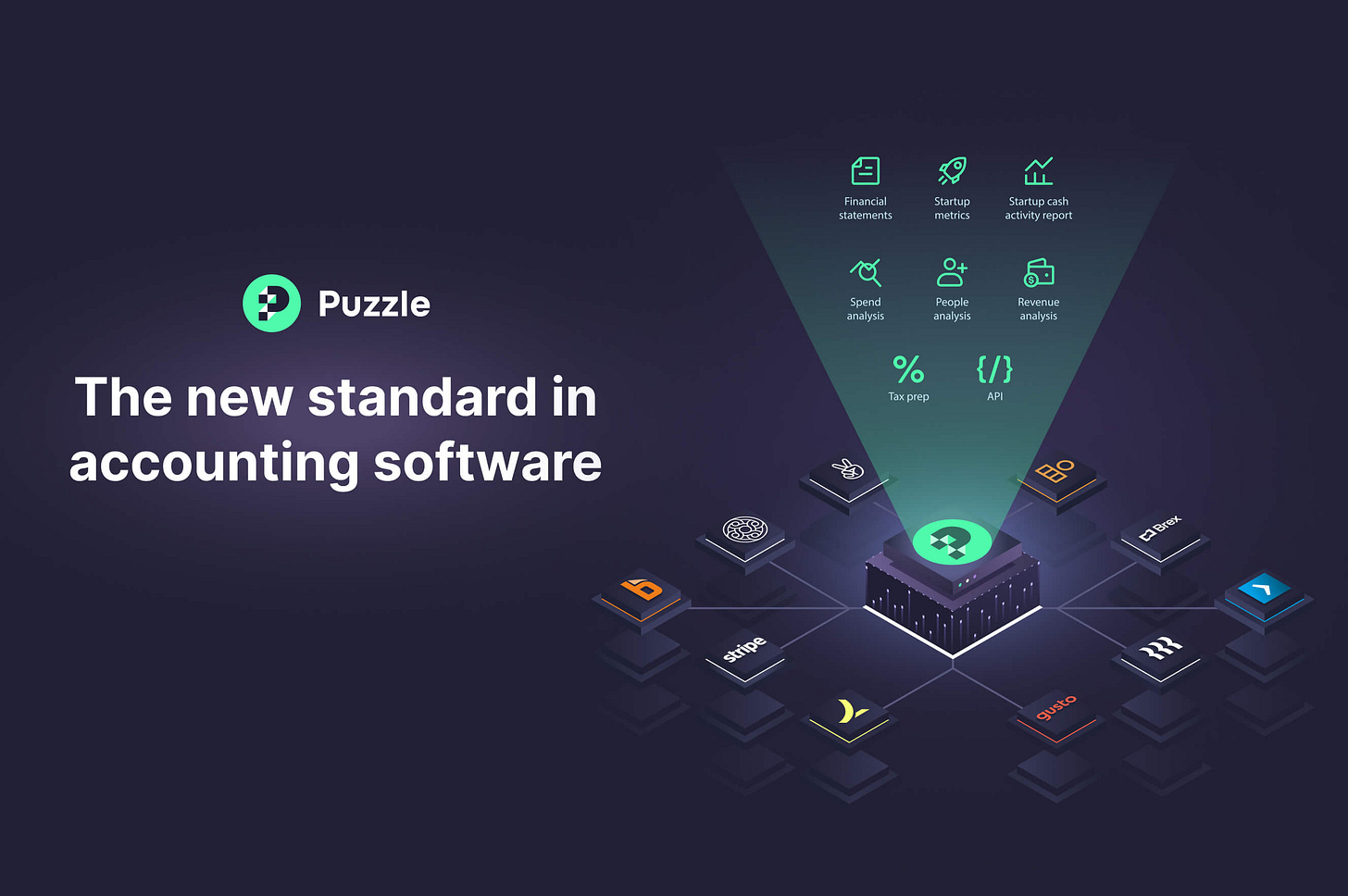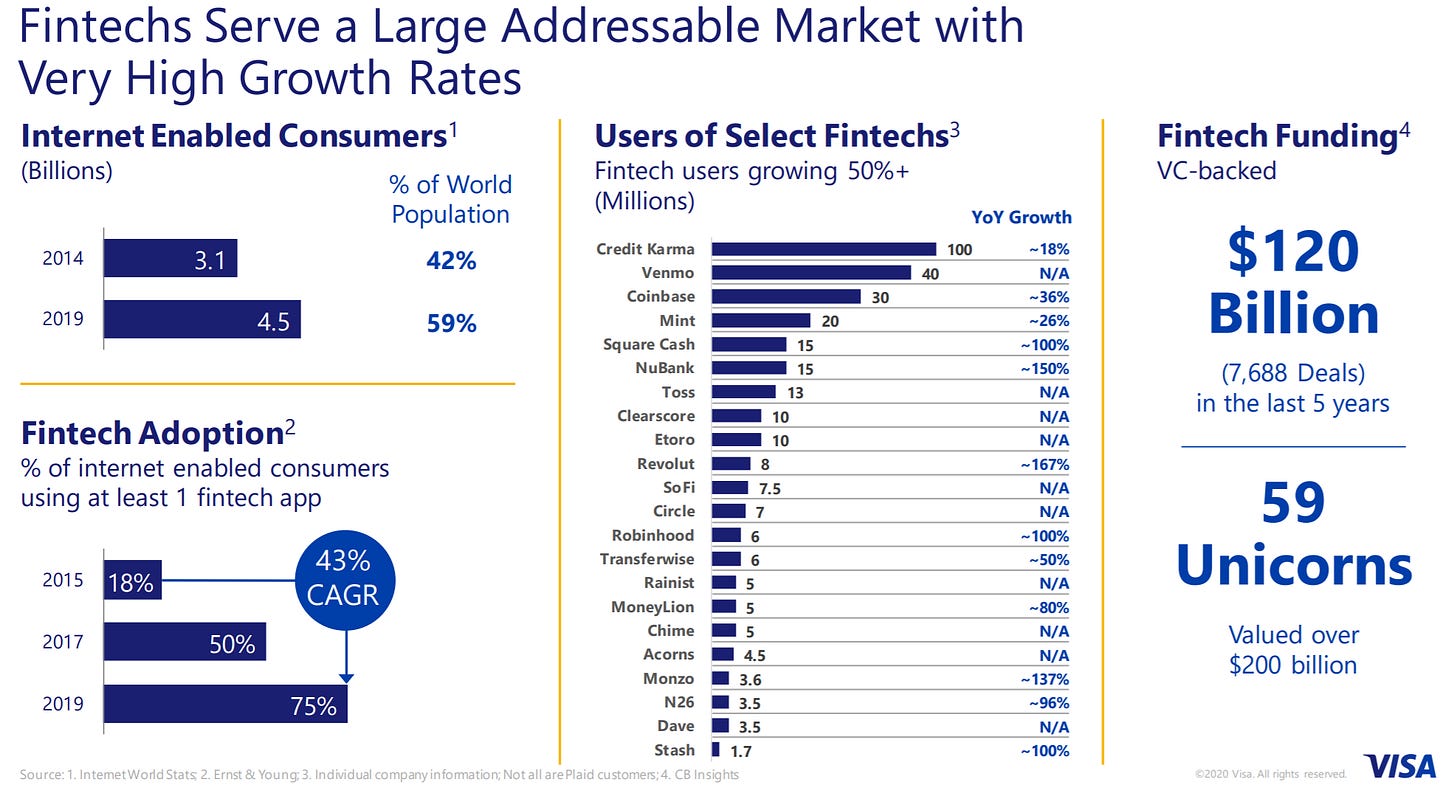Hi Fintech Futurists —
Welcome back to our podcast series! For those that want to subscribe in your app of choice, you can find us at Apple, Spotify, or on RSS.
In this conversation, we chat with Sasha Orloff - Co-Founder and CEO of Puzzle Financial. Prior to this, He was CEO and Co-founder of LendUp and the co-founder, and an Advisor to Mission Lane, the credit card division that started and spun out of LendUp in 2019.
Orloff focused on expanding financial services to new segments or markets and finding ways to harness new technology to improve lives. Ten years ago, after reading Banker to the Poor by Nobel Peace Prize winner Muhammad Yunus, Sasha was inspired to go move to one of the poorest countries in the world, Honduras, where he worked for The Grameen Foundation.
What started as a six-month internship, turned into years of service in Honduras because he found the work so inspiring. Prior to launching LendUp in San Francisco in October of 2012, Sasha worked at The Grameen Foundation’s technology team, The World Bank’s Consultative Group to Assist the Poor, and most recently, Citigroup.
Sasha has a B.S. in Applied Math and Economics and a minor in Behavioral Psychology from the University of California, San Diego, and an M.B.A. from Georgetown University.
Topics: Fintech, AI, artificial intelligence, machine learning, GenAI, Accounting, Software, LLM, embedded finance
Tags: Puzzle, Puzzle Financial, Mission Lane, LendUp, ChatGPT, Brex, Stripe, Plaid
👑See related coverage👑
Fintech: Apple Cash push into ID and recurring payments; Blackrock Aladdin teams up with Avaloq, no FutureAdvisor mention
[PREMIUM]: Long Take: Is the CFO automation suite (Brex, Ramp, Jeeves, Digits) an SMB underwriting Trojan Horse?
[PREMIUM]: Long Take: The opportunities in the Web3/DAO CFO tech stack, compared to its Fintech counterparts
Timestamp
1’43”: The evolution from traditional banking to fintech entrepreneurship: Exploring personal journey and the early days of fintech
7’10”: The East vs West Coast perspective in fintech's infancy: Analyzing venture investments, startup culture, and the birth of innovative fintech ventures like LendUp
12’36”: Deciphering the keys to fintech success: The role of mobile distribution, underwriting capabilities, and capital flow in shaping lending ventures
18’23”: Transitioning into the realm of autonomous accounting: The genesis of Puzzle and its inevitable emergence in the fintech landscape
22’41”: Reflecting on the evolution of fintech: Assessing the impact of financial data accessibility, manufacturing financial products, and mistakes in early accounting software ventures
28’23”: The rise and fall of Personal Financial Management (PFM) tools: Evaluating consumer adoption, value proposition, and the role of autonomous accounting in fintech's future
34’47”: Exploring the integration of natural language processing into quantitative software: The role of language models in user experience and backend operations
39’04”: Deciphering the nature of rules in language models: Deterministic vs. Probabilistic approaches in accounting software
41’59”: Speculating the future of AI: A dichotomy between deterministic structures and probabilistic models in building intelligent software
46’10”: The channels used to connect with Sasha & learn more about Puzzle
Sneak Peek:
Sasha Orloff:
…what I'll say is, my thoughts on how it related to building Puzzle was this knowledge, like the Plaids of the world, which actually we were one of the first customers of Intuit's version, which was the original one before Plaid came up, was really, really powerful. It unlocked a level of data that made things like Mission Lane and LendUp possible because everybody has cash flow. You could see if somebody has a job and an income, which that information just was never available.If we think about what the analogy is today, think about how powerful Stripe replaced Chase Paymentech. If anybody was back in the day trying to do a payment processor, it was a long, painful process that resulted in a no. You have Mercury allowing the first bank with an API to exist, which now means this data is now reliably available and additional data. Rippling and Gusto, similarly payroll providers that are API native, have all of this additional data, Ramp and Brex really leading the forefront from spend management with APIs. All of these are replacing these legacy players that this data wasn't available. If it wasn't for those and the Plaids of the world, something like autonomous accounting would never be possible. So, I think there's a theme there in the availability of data with automation.
I think the second piece that I think is relevant or how I think about it is PFM really is a nice-to-have. Accounting is a requirement. If you are starting a business, you have to have an accounting system. So, I really like both PFMs and accounting. It's similarly the same thing, taking financial data, effectively your cash movement, and figuring out what's the current state of it and what does it mean. You don't have to have a PFM, but you have to have accounting software. So that I think is one key difference that struggled.
Then the next piece that I think is really interesting is, in my view, I think the majority of people for accounting and for personal financial management, when you get to a certain level, it's so complicated and there's so much knowledge that's needed that it's not really ever going to be just pure software. I think when you combine software as sort of the autonomy layer with somebody that is trusted and knowledgeable, those things become really powerful. You get the best of both worlds. You get a better product for a lower cost.
We're seeing that, the same thing. Accounting is predominantly founder-led and then accountant-led and then…
If you would like to access the full transcript, subscribe below.
Shape Your Future
Wondering what’s shaping the future of Fintech and DeFi?
At the Fintech Blueprint, we go down the rabbit hole in the DeFi and Fintech world to help you make better investment decisions, innovate and compete in the industry.
Sign up to the Premium Fintech Blueprint newsletter and get access to:
Blueprint Short Takes, with weekly coverage of the latest Fintech and DeFi news via expert curation and in-depth analysis
Web3 Short Takes, with weekly analysis of developments in the crypto space, including digital assets, DAOs, NFTs, and institutional adoption
Full Library of Long Takes on Fintech and Web3 topics with a deep, comprehensive, and insightful analysis without shilling or marketing narratives
Digital Wealth, a weekly aggregation of digital investing, asset management, and wealthtech news
Access to Podcasts, with industry insiders along with annotated transcripts
Full Access to the Fintech Blueprint Archive, covering consumer fintech, institutional fintech, crypto/blockchain, artificial intelligence, and AR/VR
Read our Disclaimer here — this newsletter does not provide investment advice and represents solely the views and opinions of FINTECH BLUEPRINT LTD.
Want to discuss? Stop by our Discord and reach out here with questions
















